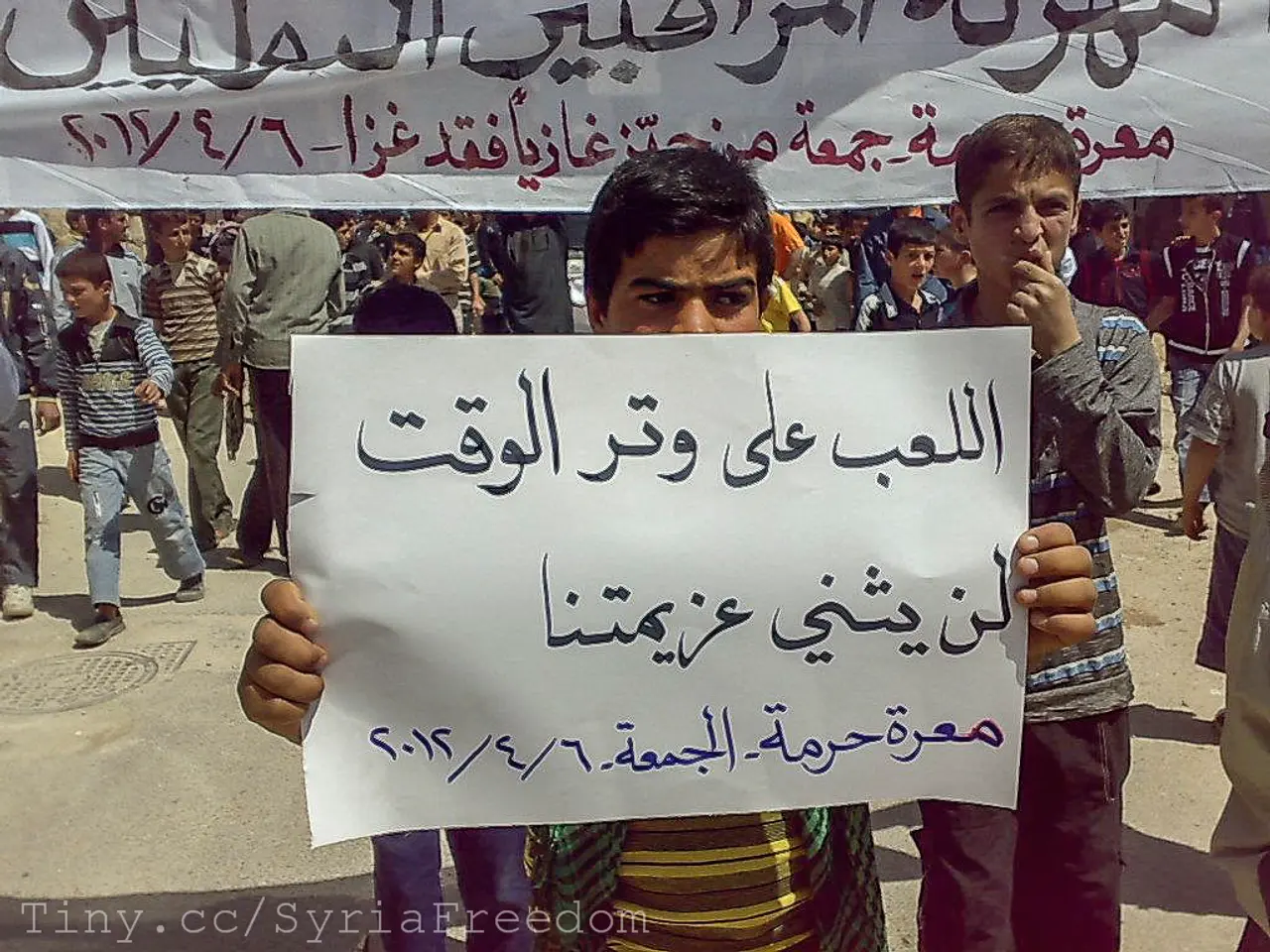EU Faces Intense Demand to Halt Incineration of American-Owned Birth Control Products by Protesters
In a cloudy morning in Brussels, over 80 to 100 protesters gathered outside the U.S. embassy, their voices echoing a call for action. The demonstrators, advocates for women's rights and sexual health, were protesting the potential destruction of $10 million worth of contraceptives stored in Belgian warehouses.
The contraceptives, owned by the U.S. Agency for International Development (USAID) program, have been under review by customs, with no clear decision yet on their fate. The protest was organised by sexual health and reproductive rights NGOs IPPF, Sensoa, 11.11.11, and the Fédération Laique de Centres de Planning Familial.
The contraceptives, mostly long-acting such as birth control pills, IUDs, and hormonal implants, were earmarked for five African countries: Democratic Republic of Congo, Kenya, Tanzania, Zambia, and Mali. Tanzania would be the country most impacted, as the products account for nearly one-third of the country's total annual contraceptive needs.
The destruction of these contraceptives could result in over 360,000 unintended pregnancies, 161,000 unplanned births, 110,000 unsafe abortions, and 718 preventable maternal deaths. Moreover, denying more than 1.4 million women and girls access to life-saving care would be the unfortunate outcome.
The reason for this potential waste lies in the Mexico City Policy, a U.S. policy that prevents U.S. aid from being sent to abortion providers and has impacted other services such as providing contraceptives. The U.S. government has rejected offers from international organisations to purchase the contraceptives at no additional cost.
Calls for the EU to get involved have been mounting for weeks, with a group of MEPs writing to Commission President Ursula von der Leyen asking her to intervene. Micah Grzywnowicz, regional director of the International Planned Parenthood Federation (IPPF) European network, urged the European Union to stand up for its values and commitments to women's freedom and to explore all legal and diplomatic avenues to stop the essential supplies from being wasted.
The European Commission has stated that only Belgium can intervene in the destruction of medicines on its territory, but the local government is doing everything it can to find a diplomatic solution. The Commission spokesperson also said they stand ready to explore ways together with partners to ensure that the supplies reach the intended beneficiaries if a solution is found.
As the protestors rallied in front of the U.S. embassy, their voices and their cause echoed a plea for action. The fate of these contraceptives, and the lives they could save, hang in the balance.
Read also:
- Federal Health Care Blueprint for 2026 Revealed by OPM Outlining Key Strategies and Objectives
- DHS ordered to enhance facilities for migrant detention centers in New York City, as stipulated by a court ruling.
- Sudan faces imminent threat of a massive food shortage crisis
- Severe malnutrition deaths repetitively observed in Gaza under Israel's blockade, according to the United Nations








